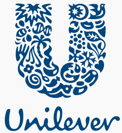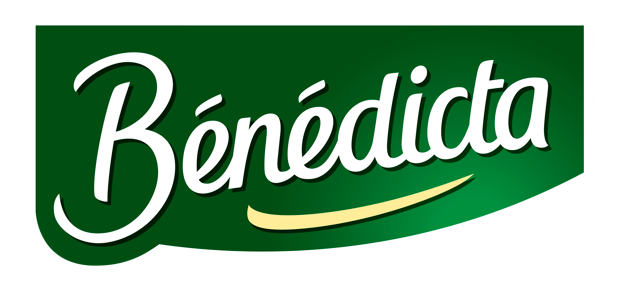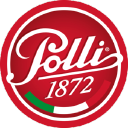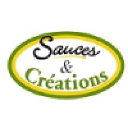Summary
Il mercato globale delle salse, un sotto-segmento del mercato dei condimenti e delle spezie, sta vivendo una rapida crescita con un aumento previsto da 63 miliardi di dollari nel 2019 a 80 miliardi di dollari entro il 2024 a un tasso del 5,1%. In Francia, il mercato nazionale della produzione di salse è cresciuto a un tasso medio annuo del 2% dal 2016, con un valore di produzione che ha raggiunto i 623 milioni di euro nel 2019. Nonostante questa crescita, la Francia dipende fortemente dalle importazioni per soddisfare la domanda, con un rapporto di copertura di solo il 44% nel 2020. Il mercato è caratterizzato da vari tipi di salse, con una notevole presenza di opzioni biologiche e naturali che riflettono le tendenze dei consumatori verso prodotti più sani. Tra gli attori principali figurano Kraft Heinz e Unilever, che detengono quote di mercato significative in Francia e a livello globale. La crisi della COVID-19 nel 2020 ha portato a un'impennata nel consumo di salse in Francia, soprattutto per le salse calde, correlate all'aumento delle vendite di pasta. Le salse fredde hanno registrato un aumento del 10% del fatturato dal 2019 al 2020, mentre le salse calde sono aumentate del 12%. In generale, i consumatori mostrano una crescente preferenza per le salse che offrono benefici per la salute senza compromettere il gusto, una tendenza che si riflette nell'evoluzione dell'offerta dei produttori di salse...Il mercato francese delle salse: Evoluzione delle preferenze dei consumatori e crescita della domanda Nel regno degli accompagnamenti culinari, le salse giocano un ruolo fondamentale nell'esaltare i sapori e nel dare varietà ai pasti di tutti i giorni. In Francia, il mercato delle salse, un sotto-segmento distinto dei condimenti e delle spezie, ha registrato una crescita e una diversificazione significative. Il mercato francese delle salse ha registrato un aumento costante nel corso degli anni e il suo valore raggiungerà approssimativamente tra i 615 e i 630 milioni di euro entro il 2019. La domanda di salse nel mercato francese può essere suddivisa in due tipologie: salse fredde e salse calde. Nel 2020 è stato osservato un aumento sostanziale delle vendite, che hanno superato la soglia di 1 miliardo di euro, con le sole salse fredde che hanno registrato un fatturato di circa 585 milioni di euro, segnando un aumento del 10% rispetto all'anno precedente. Questa impennata è attribuita all'impatto della pandemia di Covid-19, che ha spostato i modelli di consumo verso la ristorazione domestica e le consegne di cibo. Le salse fredde, relativamente stagnanti negli ultimi anni, hanno registrato una ripresa della crescita nel 2020. La varietà di salse, come barbecue, hamburger, béarnaise e tartare, ha registrato un tasso di crescita impressionante di circa il 18%. Le salse fredde più acquistate dai francesi nei supermercati e negli ipermercati comprendono le salse per snack e barbecue (22%), le salse culinarie (11,5%) e il ketchup (12%). Anche il segmento delle salse piccanti, che comprende le salse per piatti a base di amido e le basi culinarie, ha registrato una crescita sostanziale, grazie all'aumento delle vendite di pasta, indotto dalle misure di blocco. Il segmento è cresciuto del 12%, raggiungendo i 666 milioni di euro nel 2020. Le salse tradizionali a base di carne hanno subito un declino a favore di alternative più salutari come il pesto, che ha registrato un notevole e continuo aumento dal 2010, allineandosi con l'aumento delle tendenze alimentari flexitariane e vegane. La composizione del mercato delle salse riflette il desiderio dei consumatori di qualità, sapore, salute e convenienza. I consumatori francesi sono sempre più attratti da salse biologiche, naturali e meno elaborate, con una crescente domanda di prodotti a basso contenuto di zucchero, sale e grassi. L'industria si è adattata a queste preferenze introducendo ketchup biologici, varianti di maionese a base vegetale e vinaigrette a ridotto contenuto di grassi. Nonostante l'evidente preferenza per le salse fatte in casa da parte di alcuni consumatori francesi, la facilità d'uso e la varietà delle salse prodotte offrono un vantaggio competitivo. Il mercato delle salse continua a innovarsi, con i produttori che lanciano nuovi sapori e prodotti che rispondono all'evoluzione del palato della popolazione francese, combinando tradizione e nuovi gusti. I principali concorrenti nell'arena delle salse francesi: I marchi che rendono più piccante il mercato Il mercato francese delle salse, ricco di varietà e tradizione culinaria, ospita diversi concorrenti di peso, i cui marchi sono diventati nomi familiari. I giganti internazionali Kraft Heinz e Unilever dominano il mercato con un ampio portafoglio di salse, soddisfacendo le diverse preferenze dei palati e mantenendo posizioni di rilievo sia nei segmenti di mercato tradizionali che in quelli emergenti. **Unilever**, attraverso i suoi marchi iconici **Amora** e ***Maille***, ha una presenza imponente, in particolare nel settore delle salse fredde. ***Amora***, un marchio profondamente radicato nella cultura culinaria francese, è particolarmente rinomato per le sue senapi e maionesi, e guida le vendite con quote di mercato invidiabili. **Maille**, invece, offre un tocco di raffinatezza e un'ampia gamma di senapi e altri condimenti gourmet, per soddisfare i consumatori alla ricerca di sapori e qualità premium. **Kraft Heinz** porta l'influenza culinaria americana nel mercato francese, in particolare con il suo marchio globale **Heinz**. Questo marchio è sinonimo di ketchup ed è noto per essere leader del segmento grazie all'innovazione e alla diversità dei sapori. Inoltre, Kraft Heinz arricchisce il panorama francese delle salse con **Bénédicta**, un marchio locale che si rivolge ai gusti dei francesi offrendo un assortimento di salse bianche e varie. Oltre a questi colossi, si distinguono anche marchi francesi di rilievo. **Lesieur**, parte del gruppo Avril, è apprezzato per la sua gamma di oli da cucina, maionesi e condimenti per insalata. Con un'attenzione particolare alla produzione locale e alle pratiche sostenibili, Lesieur si rivolge ai consumatori attenti all'ambiente. **Panzani**, sotto l'ala del gruppo spagnolo Ebro, compete efficacemente con un'attenzione particolare alle salse calde come i pesti e i sughi per la pasta che sfruttano l'amore dei francesi per le tradizioni culinarie italiane. Poiché le tendenze si spostano verso opzioni vegetariane e più salutari, Panzani si adatta, enfatizzando il sapore e la salute nella sua offerta di salse. Infine, il segmento dei sughi non sarebbe completo senza menzionare i piccoli produttori artigianali e i marchi privati che aggiungono diversità, offrendo prodotti localizzati e di nicchia che soddisfano gusti e preferenze particolari. Queste piccole aziende spesso enfatizzano gli ingredienti naturali e le certificazioni biologiche, sfruttando la crescente domanda di opzioni salutistiche da parte dei consumatori. Nel complesso, questi importanti attori del mercato delle salse orchestrano una sinfonia gastronomica nello spazio di vendita al dettaglio francese, ciascuno con le proprie strategie, offerte di prodotti e innovazioni, bilanciando il desiderio di gusti indulgenti con le tendenze salutiste. Che si tratti di insaporire un semplice pasto fatto in casa o di elevare
to understand this market
Detailed content
 Inforamtion
Inforamtion
- Number of pages : 30 pages
- Format : Digital and PDF versions
- Last update : 12/11/2021
 Summary and extracts
Summary and extracts
1 Panoramica del mercato
1.1 Definizione e ambito dello studio
A salsa è una preparazione liquida o semiliquida che accompagna certi piatti. C'è effettivamente un varietà di salse diverso, questo studio distingue tra il salse piccanti di salse fredde . Ci occuperemo principalmente del mercato della salsa all'interno del industria al dettaglio anche se l'industria della ristorazione fuori casa è anche un cliente dei produttori di salse, così come l'industria alimentare come consumatore intermedio
Il mercato delle salse è un sotto-segmento del mercato delle salse condimenti e aromi e consiste principalmente in :
- salse preparate con pomodoro (ketchup, bolognese, ...) o salse di soia
- salse emulsionate (maionese, condimenti per insalata, ...)
- salse cotte (béarnaise, ...)
- salse da condimento
- mostarde preparate
A livello globale, il mercato è in forte aumento e segnato da una grande diversità di offerta. È dominato dai due gruppi Kraft Heinz e Unilever che possiedono molti marchi
In Francia, il valore della produzione di salsa da parte delle aziende sul territorio francese sta vivendo un tasso di crescita medio annuo del 2% dal 2016 . Tuttavia, la Francia dipende dalle esportazioni dall'estero per soddisfare la domanda interna Nel 2020, le vendite di salse in Francia sono cresciute di circa il 10% rispetto al 2019. I due gruppi Kraft Heinz e Unilever sono presenti in Francia attraverso marchi francesi come Benedicta o Amora-Maille.
Tendenze bio e naturale il mercato delle salse, che è ancora molto competitivo competitivo in Francia con nuove ricette lanciate frequentemente.
 List of charts
List of charts
- Size of the global sauces market
- Size of the sauces market in France
- Structure of sauce production
- Market share of distribution channels in the hot sauce retail trade
- Sauce price index
All our studies are available online in PDF format
Take a look at an example of our research on another market!
Latest news
Companies quoted in this study
This study contains a complete overview of the companies in the market, with the latest figures and news for each company. :
 Choosing this study means :
Choosing this study means :
Access to more than 35 hours of work
Our studies are the result of over 35 hours of research and analysis. Using our studies allows you to devote more time and added value to your projects.
Benefit from 6 years' experience and over 1,500 industry reports already produced
Our expertise enables us to produce comprehensive studies in all sectors, including niche and emerging markets.
Our know-how and methodology enable us to produce reports that offer unique value for money.
Access to several thousand articles and paid-for data
Businesscoot has access to all the paid economic press as well as exclusive databases to carry out its market research (over 30,000 articles and private sources).
To enhance our research, our analysts also use web indicators (semrush, trends, etc.) to identify market trends and company strategies. (Consult our paying sources)
Guaranteed support after your purchase
A team dedicated to after-sales service, to guarantee you a high level of satisfaction. +44 238 097 0676
A digital format designed for our users
Not only do you have access to a PDF, but also to a digital version designed for our customers. This version gives you access to sources, data in Excel format and graphics. The content of the study can therefore be easily retrieved and adapted for your specific needs.
 Our offers :
Our offers :
il mercato delle salse | Francia
- What are the figures on the size and growth of the market?
- What is driving the growth of the market and its evolution?
- What is the positioning of companies in the value chain?
- Data from several dozen databases
Pack 5 études (-15%) Francia
- 5 études au prix de 75,6€HT par étude à choisir parmi nos 800 titres sur le catalogue France pendant 12 mois
- Conservez -15% sur les études supplémentaires achetées
- Choisissez le remboursement des crédits non consommés au terme des 12 mois (durée du pack)
Consultez les conditions du pack et de remboursement des crédits non consommés.
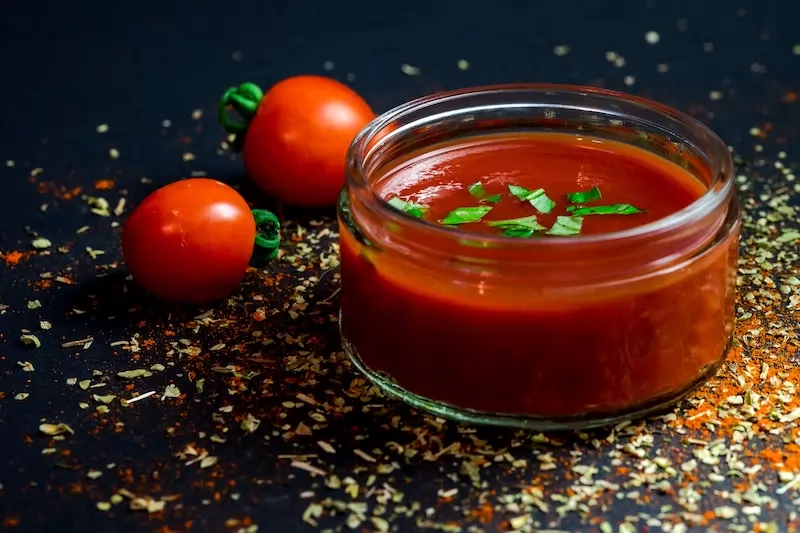




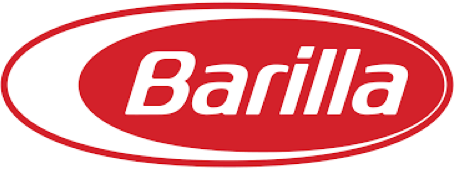 Barilla loses the second round of the cookie war - 02/04/2024
Barilla loses the second round of the cookie war - 02/04/2024
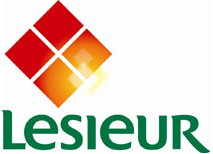 Meatless meals: Lesieur puts its plant-based cooking at the heart of meals - 08/10/2023
Meatless meals: Lesieur puts its plant-based cooking at the heart of meals - 08/10/2023
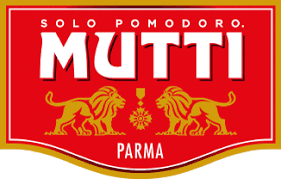 Mutti, champion of tomato sauce - 05/07/2023
Mutti, champion of tomato sauce - 05/07/2023
